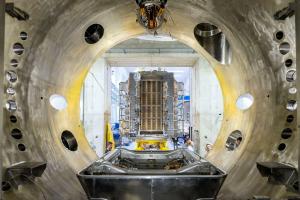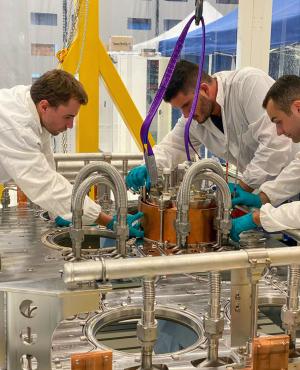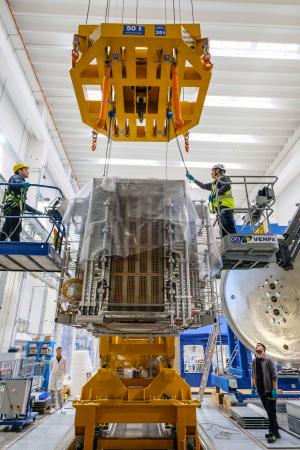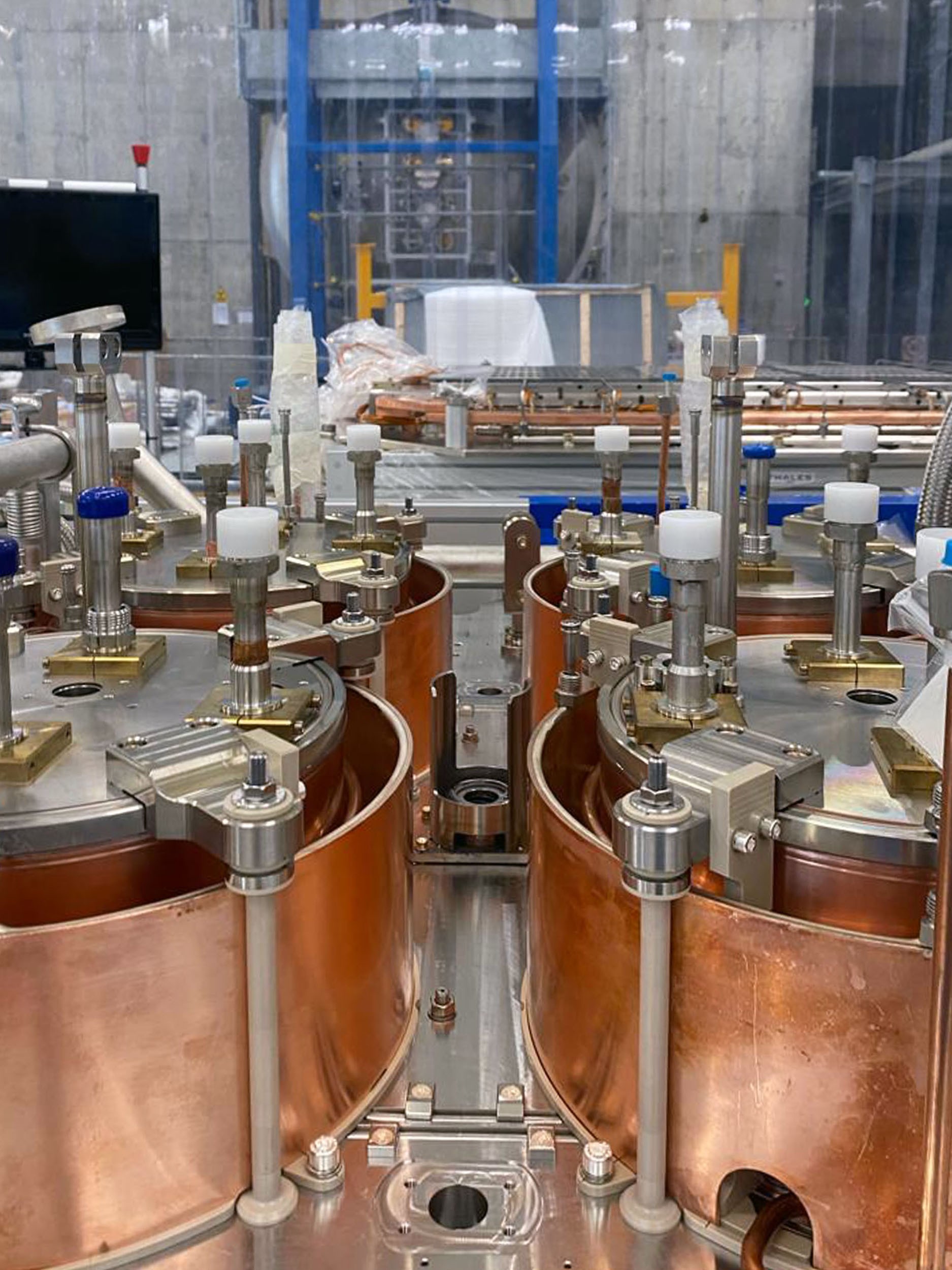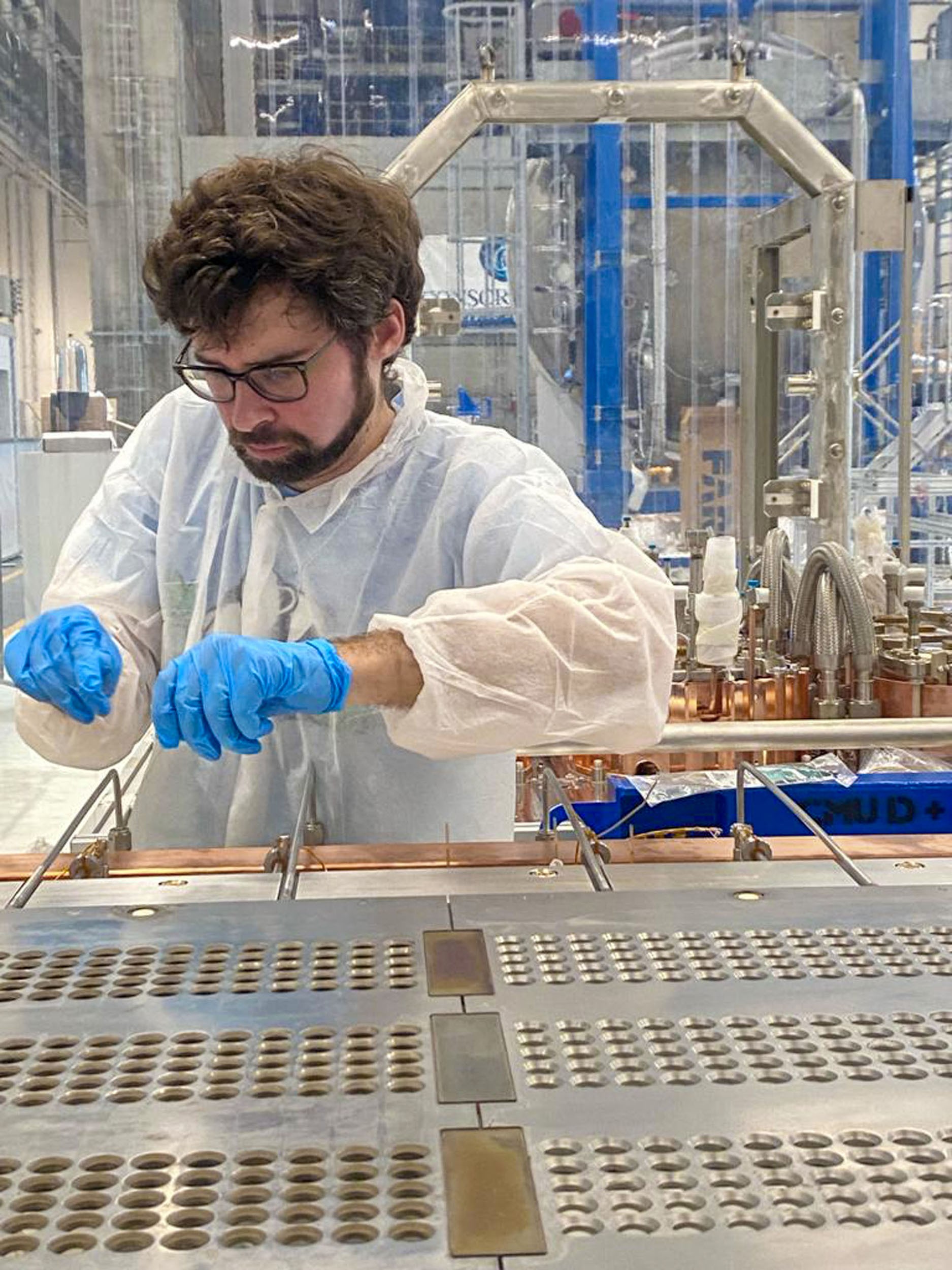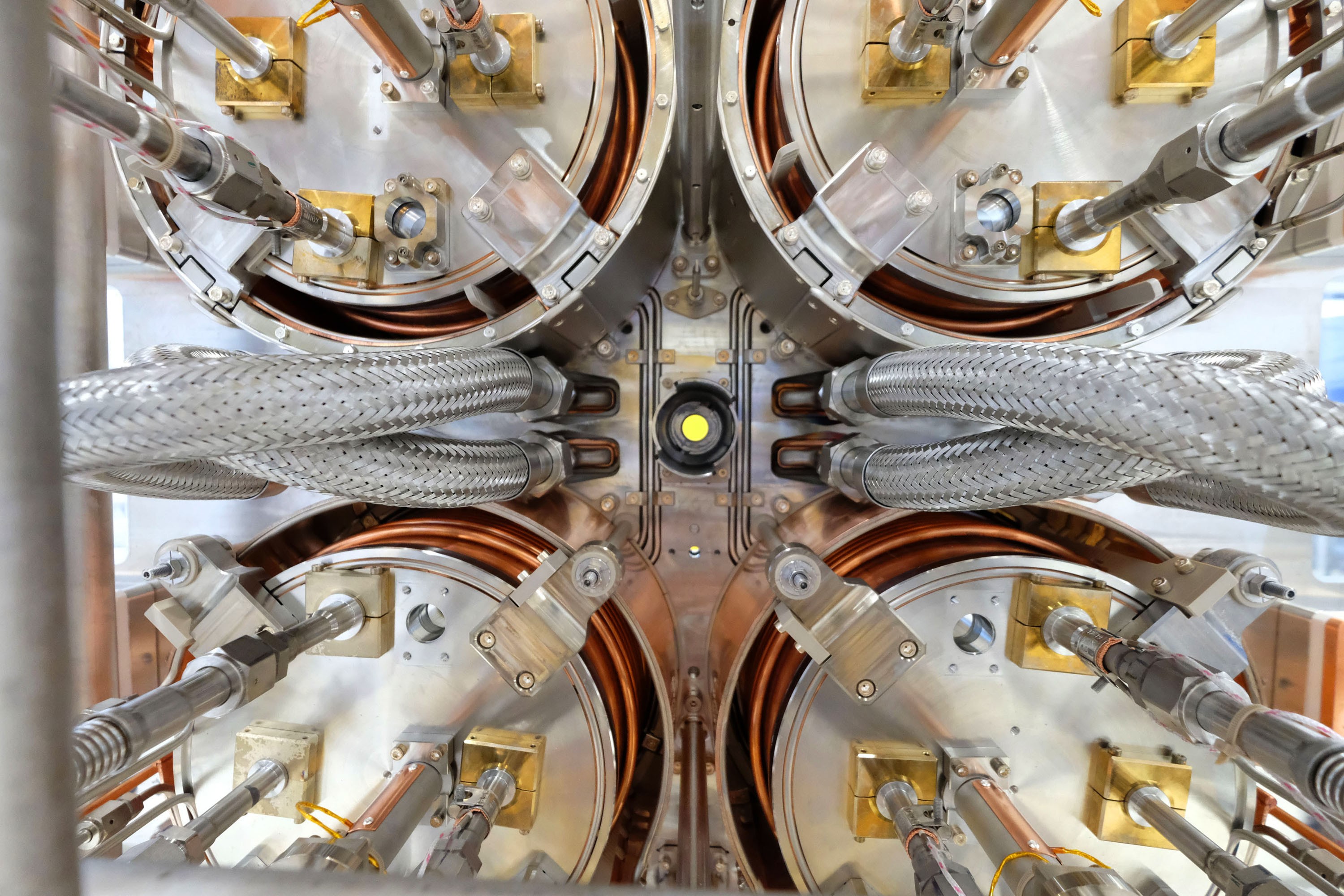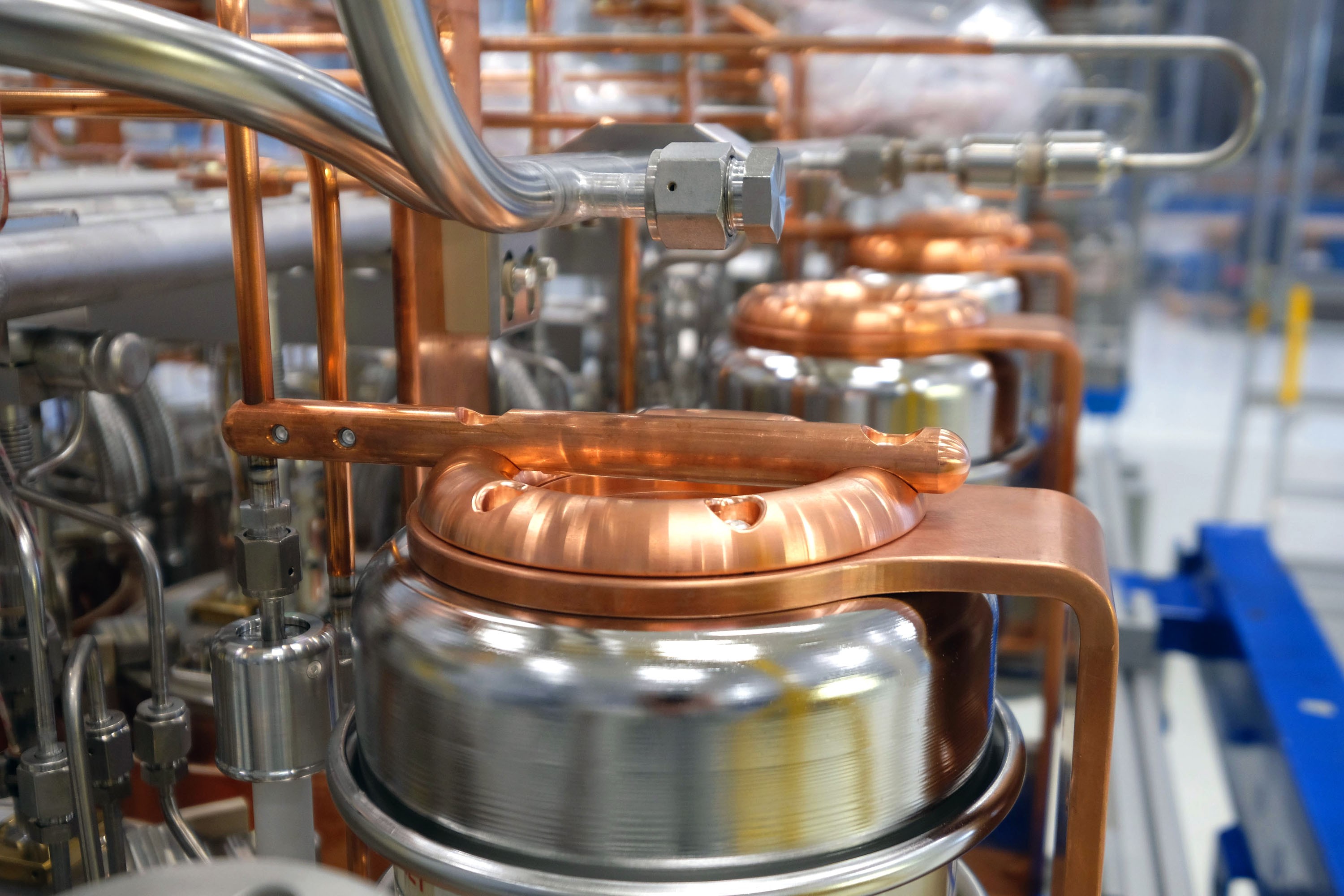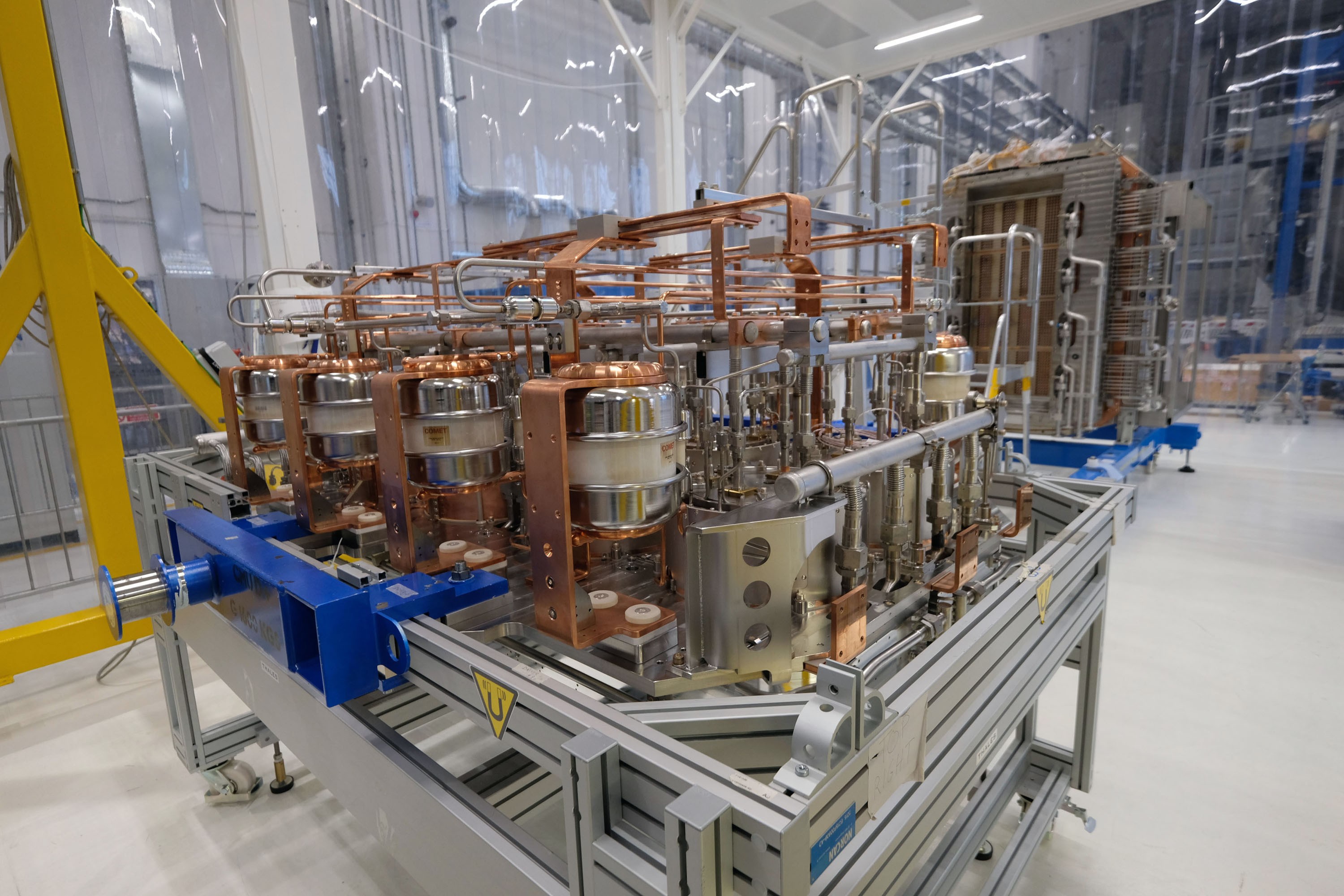After upgrades, SPIDER testbed set to restart
After a two-year shutdown for upgrades, the SPIDER testbed at the ITER Neutral Beam Test Facility in Padua, Italy, is preparing for commissioning and operation. SPIDER is a full-size negative ion source that is designed to demonstrate all the critical aspects of the ion sources for ITER's heating and diagnostic neutral beam injectors.
In operation since 2018, SPIDER successfully completed its first campaign in 2021. Based on the results of this campaign, upgrades representing an investment in the range of EUR 1.5M were designed and carried out. "With approximately 60 procurements for new or revised components for beam source enhancement, the shutdown has set the stage for SPIDER to achieve the performance targets required by ITER in terms of ion beam density, and beam uniformity and divergence," says Diego Marcuzzi, NBTF Project Manager.
In shaping these advancements, the NBTF team focused on a challenging activity program of design, simulation and modelling for the experiment upgrade, followed by the realization by industry of the modifications, which are intended to fine-tune one of the most critical components of ITER's neutral beam injector system—the beam source.
SPIDER has also been enhanced with new diagnostic systems to measure the uniformity of the plasma and of the beam, both with the introduction of fixed probes at the driver level, in the bias grid, and by electrically isolating individual segments of the extraction grid. "This required a revision of the geometry of some components and the careful installation of additional equipment, without perturbing the voltage-holding capabilities," says Gianluigi Serianni, NBTF Scientific Exploitation Leader. "For instance, one of the largest flanges on the vacuum boundary was modified to allow a significant increase of acquisition capabilities and consequently diagnostic monitoring. Moreover, an important test will be performed on a largely modified plasma generator."
Behind the scenes of this hard work, which has required more than two years of teamwork, there is the strength of a joint scientific collaborative effort driving the project forward. A collaboration that has recently seen Indian colleagues from ITER India/Institute for Plasma Research joining the NBTF team in view of the SPIDER enhancements.
In the next months, the modifications introduced in SPIDER will be tested. All the attention is now on the next operational campaigns, which will hopefully provide a further increased momentum in advancing development to provide ITER with reliable, high-performance neutral beam injectors.

